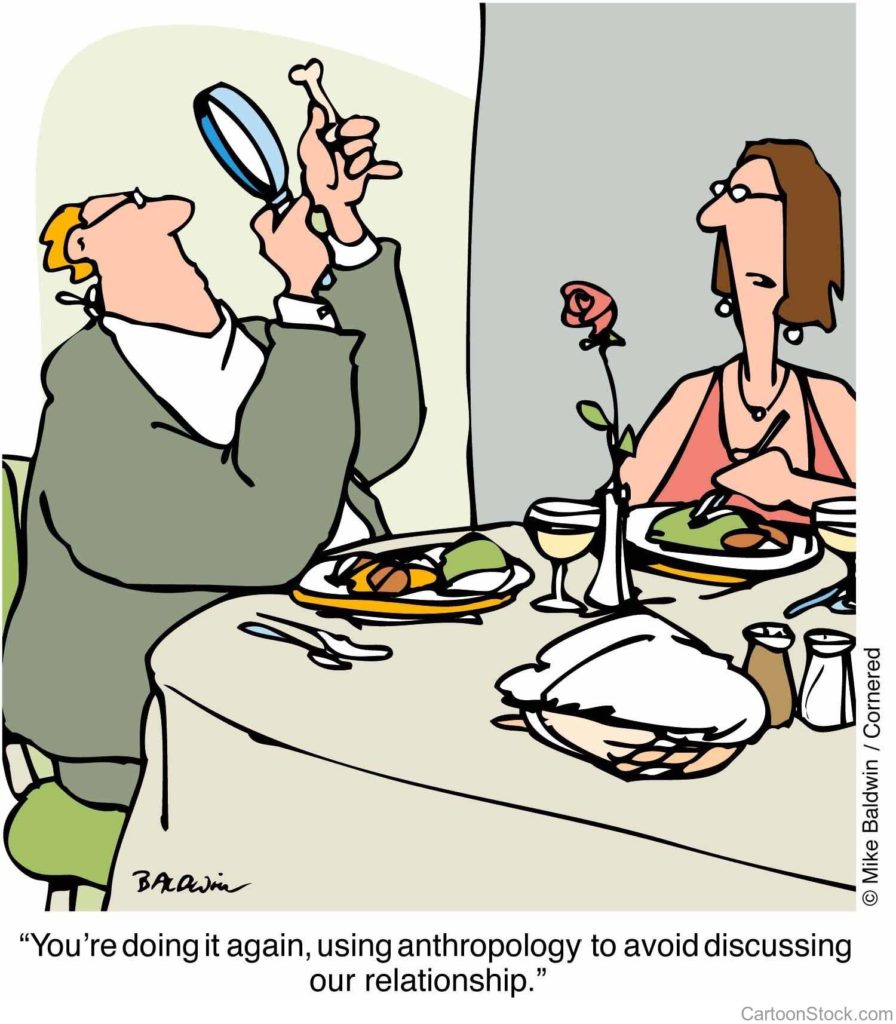 Observe and study experiences as an anthropologist would observe and study a ritualistic dance of a tribe in the Amazon.
Observe and study experiences as an anthropologist would observe and study a ritualistic dance of a tribe in the Amazon.
Anthropologists have an insatiable curiosity about life and possess the requisite skills to study and understand their subjects. They are non-judgmental and they don’t interfere with, or try to change, the subject they are studying. Their sole intent is to observe and learn.
For instance, Margaret Mead (one of America’s first and best anthropologist) is known for her studies of the non-literate peoples of Oceania, especially with regard to various aspects of psychology and culture—the cultural conditioning of sexual behavior, natural character, and culture change. She spent 30 years observing and studying young adolescent girls on the island of Samoa. She was not there to judge, interfere, or change.
Sometimes, it’s beneficial to think like an anthropologist.
For instance, I recently attended the annual Airports Going Green Conference. For three days environmentalists from around the world met to discuss environmental issues and opportunities that airports deal with. I had no responsibilities at the conference and the topic was far outside my bailiwick so I donned my anthropologist persona and for three days simply studied the people who attended and the issues that brought them together.
Thinking like an anthropologist affected my approach; I was a silent, detached observer. This perspective made me more aware of motivations, historical perspectives, roles people played, and possible future outcomes.
Adopting the mindset of an anthropologist heightens our desire to listen and to understand; it lessens our tendency to voice our opinion and perspective. It minimizes our proneness to criticize and reduces our penchant to try to change things. It may even make us more agreeable and easier to get along with, but that’s another topic for another post.
I titled this post “Sometimes, think like an anthropologist” because we needn’t think like one all the time. Most of the time we need to think critically and aggressively address issues.
But occasionally it is beneficial to change persona, take out your notebook and magnifying glass, and simply observe.
[reminder]What are your thoughts about this essay?[/reminder]

Hello Don,
I plan to follow these “rules” when visiting Nagaland, India, March 9-22, visiting Christian mission leaders, churches, colleges, and seminaries. Why am I going:
1) to visit my mother’s birthplace in Kohima, India; and
2) to present to church leaders, archival materials I have been studying from my grandfather (Papers of Joseph E. Tanquist, 402 pp; missionary service in Nagaland, 1912-1947) The Nagas want these documents to help them write their history of Christian missions.
Oh, Ken, can I go too? That sounds like a great trip. I’ve been to India four times. It is known as “an assault on your senses.” Everything you see, hear, smell, taste and touch is on steroids. It’s wonderful. Have a safe trip.